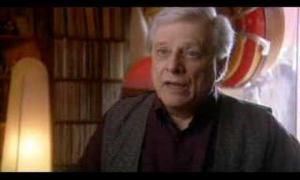The Speechwriter’s Life: Therman Evans, Jr.
October 04, 2015
In speechwriting, "You do your best and let go of the rest."
“Hubris has no place in speechwriting,” according to Therman Evans, Jr., a lawyer turned scribe for the National Education Association’s senior leadership. “You need to develop a thick skin and keep your ego in check. As a speechwriter, some days you’re going to hit a home run, or maybe a single. Other days, you may hit a foul, or even a really bad foul. You do your best and let go of the rest.”
Speechwriting wasn’t Evans’ initial career—he first practiced law for about 10 years, and nurtured his interest in speechwriting by running a writing firm on the side. His legal background was a great asset when he began writing speeches full-time. “I think there’s a direct correlation between law and speechwriting,” he said in a discussion with Vital Speeches. “In both law and speechwriting, you’re using language to inform, persuade or inspire a group of people to do something or believe something. While writing speeches, I’ve been able to draw on my analytical and persuasive skills as a lawyer. That includes due diligence on behalf of the principal, before I present a draft text to someone for review.”
From 2003 to 2006, Evans was a speechwriter in the office of Anthony Williams, Mayor of Washington, DC. In the relationship between speechwriter and principal, “you have your ups and downs, like in a marriage. But Mayor Williams respected the speechwriting process. I had to pull information from him, when I was first writing for him, to learn about his heroes, his favorite quips and quotes, his childhood and so on. Some of this was information that he may only have wanted to share with a close family member. And maybe sometimes I would get on his nerves, because of the frequency of our contact. However, the Mayor was open to the dialogue that comes with the drafting and re-drafting process. He wasn’t somebody who said: ‘you didn’t get the draft perfect the first time, so I’ll take it from here.’”
A highlight from Evan’s work with Mayor Williams was the Mayor’s 2005 speech announcing that he would not seek re-election.
“I remember toiling over the speech like it was yesterday. All the Mayor’s advisors at one point were sitting around a table, and volleying what they thought he should say. I had to draft the speech to help people remember where the city was in 1999, when he took office, and illustrate how he had worked to lay the foundations for the District’s resurgence. The speech helped the city walk through the door that Mayor Williams had opened,” Evans said. Another goal of the speech was to reinforce how, contrary to his critics, Williams had worked to improve the lives of people living in all parts of the District.
“There were speeches I worked on for Mayor Williams where I did not feel so confident about how they would go over—but they were received very well. And speeches that I had loved working on sometimes did not go over well at all. But that may be the life of a speechwriter,” Evans added.
Following his work for the Mayor, Evans joined the National Education Association as a speechwriter. The NEA’s senior leadership collectively delivers speeches, statements and brief remarks hundreds of times a year. “Whatever audience we are addressing, whether it’s parent groups, or corporate America, or a regional affiliate, there’s a consistency to our message, whether we’re on offense or defense. We’re always talking about equality and success for all students, and ensuring they have access to a quality public education, regardless of zip code,” Evans said.
As someone who has both freelanced and written speeches in-house, Evans prefers working in-house. “When you’re working in-house, you have immediate access to everything you need. People respond right away when you require some information, for example, because they know who you are, and what you have to accomplish. Being in-house also means it’s easier to exchange views with other people in the organization who have a different perspective, and that also helps in the drafting process. Working as a freelancer, you often lack access to resources like these, and I found that frustrating at times.”
Evans signed off his talk with an observation about the similarities between speechwriting and song lyric writing. “Think of your favorite song. That song could have required hours, perhaps days, of re-writing and re-thinking, all to give it that impact that it has on you and others,” he said.
“It takes an ample, committed and determined amount of time to refine speeches and song lyrics. But allocating even a short amount of time for editing can make a difference. Recall how the original opening line in FDR’s speech following the attack on Pearl Harbor talked about ‘a day that will live in world history.’ Now think about how much more powerful the final version of that line is, with its reference to ‘a day that will live in infamy.’ Substituting one word for two resulted in a phrase that is now etched in memory, for all time,” Evans said.


